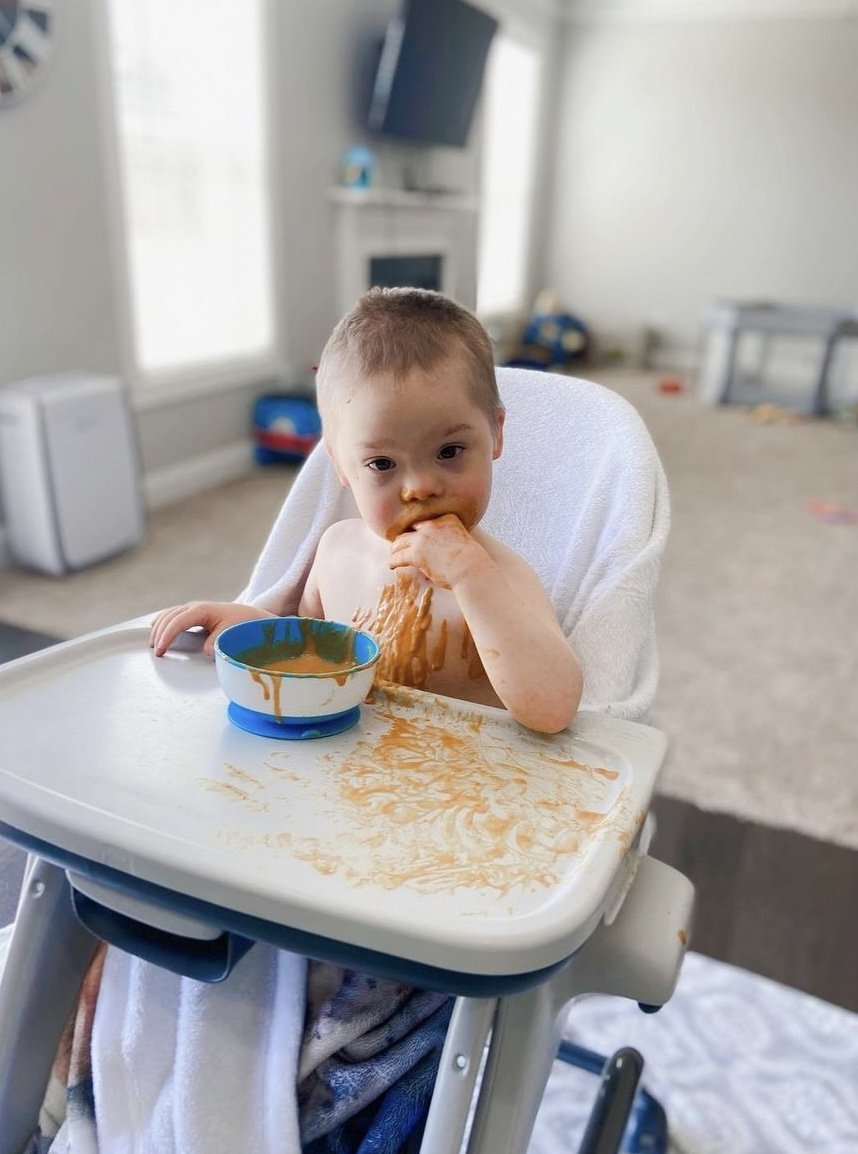
Our Services
Community Outreach + Speech & Feeding Therapies
Hoping to receive services with us? Please call us today and we will be happy to assist you!
Speech Therapy
Our goal is to give your child a voice!
Every child is unique, and that is why our focus is on individualized, evidence-based treatment. Our objective is to work in a partnership with families to achieve attainable goals that are important to you. We offer one-on-one treatment sessions, in both a quiet therapy room setting as well as in a sensory gym, depending on the child’s needs and interests. We also work closely with a physical and occupational therapist company to promote carryover, and to offer a unique and comprehensive therapeutic environment.
Speech-Language therapy covers a variety of areas such as:
Augmentative and Alternative Communication (AAC): Our therapists are familiar with programs such as LAMP, ProLoQuo2Go, and Touch Chat. We work closely with different AAC companies to find the right device for your child.
Oral Motor: All of our therapist are Beckman Oral Motor trained and/or PROMPT trained.
Articulation: We work with your child to assist with correct sound production.
Executive Functioning/Processing: We believe in creating functional activities and using real-life scenarios to assist with executive functioning and processing skills.
Receptive and/or Expressive Language Disorders: We meet your child at their current level and assist in language development and expansion.
Apraxia: We provide strategies to assist with re-training motor patterns in order to produce accurate sound production.
Social Difficulties: We love creating and encouraging real-life scenarios to help develop social skills.
Fluency: We help provide strategies to assist with dysfluent speech.
Autism: We work closely with occupational and physical therapist to provide a multi-sensory approach to therapy.
The following links list developmental milestones and possible warning signs of a communication disorder:
https://identifythesigns.org/signs-of-speech-and-language-disorders/
https://www.stanfordchildrens.org/en/topic/default?id=age-appropriate-speech-and-language-milestones-90-P02170
If you think your child may need to be evaluated, please consult your primary care provider for a referral or contact us with any questions you may have! We can’t wait to meet you!
Feeding Therapy
AID-L provides responsive, family centered feeding and swallowing therapeutic services. Our goal is to create an environment where patients and family can build trust in feeding while growing their skills and motivation to eat. We strive to work as a team with caregivers and other professionals to improve quality of life and relationships with food.
Trust: Every feeding experience a child and family have forms an association with food. Our goal is to further build that trust and grow comfortability with mealtime, while always respecting any communication and responses the child has.
Team and Family centered: We strive to build a multidisciplinary team for our patients, which begins with the caregivers. It is with both the family and other practitioners' support that we can dive into the root cause of a feeding difficulty. We work with families to advocate for their needs, and to set appropriate goals. It is AID-L's desire that through empowerment, a child will not only achieve, but exceed expectations
Quality of life: Progress is important to us, but our focus lies in improving the quality of life for our patients and families when it comes to feeding.
Feeding difficulties may include:
Weight gain and growth concerns
Difficulty transitioning to an age-appropriate diet
Diet selectivity (“picky eating”)
Feeding tube or supplement dependence
Difficult mealtime behaviors and extended mealtimes
Delay in meeting feeding milestones
Difficulty with oral motor skills
Gagging, vomiting, holding, and/or expelling food
Diagnoses we treat:
Autism Spectrum Disorders
Communication Delays/Impairments
Developmentally Delayed
Genetic Disorders
Neurologic Conditions (stroke, hydrocephaly, retc)
Feeding Aversions
Oropharyngeal Dysphagia
Feeding Tube Dependency
AID-L provides support for feeding and swallowing needs in home, in clinic, and through teletherapy services. Our feeding team consists of skilled clinicians with advanced training in feeding and swallowing throughout a range of patients from anxious eaters to medically complex children. Our team is ready to treat patients from infancy to early adulthood (0-21).
If you feel your child may have or be at-risk for an infant or child feeding disorder, please reach out for a comprehensive evaluation. Early detection and treatment are vital to support adequate nutritional intake for growth and development.
“Feeding is an intricate combination and coordination of skills. It is the single most complex and physically demanding task an infant will complete for the first few weeks, and even months, of life. A single swallow requires the use of 26 muscles and 6 cranial nerves1 working in perfect harmony to move food and liquid through the body. When one or more pieces of the feeding puzzle are missing, out of order, or unclear, infants and children can have difficulty eating and drinking.” Feeding Matters
The following questionnaire is based on your child’s age and developmental milestones. Please use it as a guide and reach out if you note any “red flags” that issue concern. This may also be used to bring to your child’s primary care physician to support a referral for services.
Feeding Matters Infant and Child Questionnaire
In-Home Services
AID-L is proud to offer a limited number of spots for in-home therapy services. We are excited to provide both feeding and speech & language services in a natural environment setting. This allows us to deliver quality, evidence-based therapy and provide resources to previously underserved populations.
AID-L is passionate about adapting with the needs of the upstate and the families we serve. For this reason, and the noticeable gap of in-home service opportunities, we are now traveling to select areas and building skills within a child's home environment. Our goals include building parent and child relationships using the coaching model, as well as, empowering caregivers with the skills to help their child grow and develop. By coming to families, we are able to help caregivers become an active member of their child's team of advocates in a way that may provide more efficient long-term support.
What families are saying:
“This is an amazing group of therapists! They are all so loving, sweet and genuinely care about my children’s success. My kids have come so far in their speech with them.”








